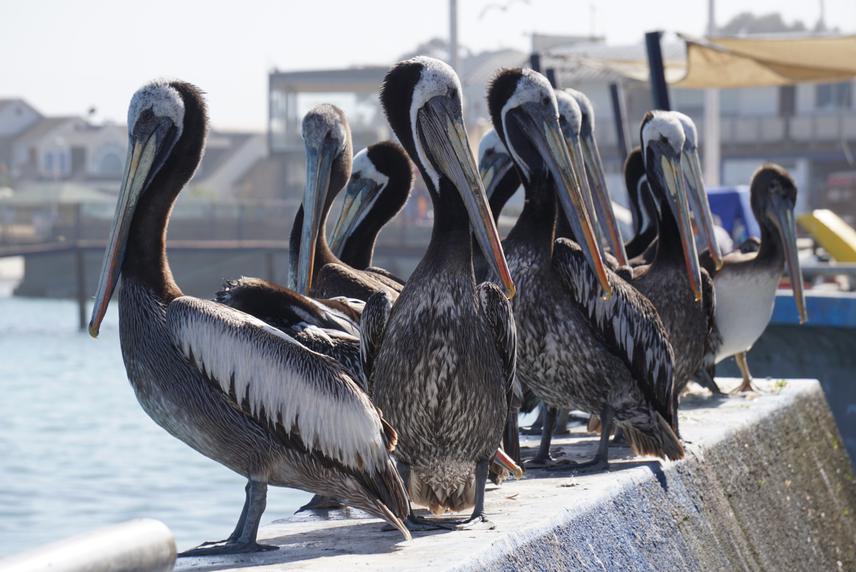Tania Suarez-Yana
Human activities impact marine wildlife through the ‘pathogen pollution’ of antimicrobial-resistant bacteria. Extended-spectrum-β-lactamase-producing Escherichia coli (ESBL-EC) have contaminated wild birds worldwide and can be used as a human pollution indicator of natural ecosystems. The Peruvian pelican could act as a sentinel of pathogen pollution risk to endangered seabirds from the Humboldt Ecosystem.

Peruvian pelican. © Cristina Caparros-Vallcorba.
We aim to compare the prevalence of ESBL-EC in three different human-impacted Peruvian pelican populations in Chile. One Health education campaigns in public schools and municipalities will promote local actions to mitigate this pathogen pollution. Results will contribute to understanding and limiting pathogen pollution potential to endangered seabirds.